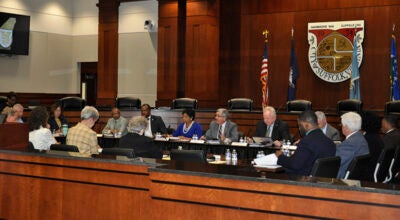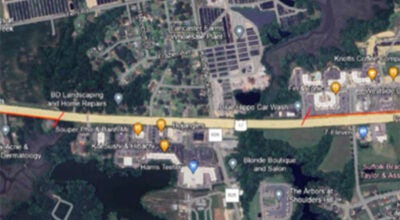Beware of scams
Published 8:30 pm Friday, February 12, 2016
Local law enforcement agencies are warning citizens about scams that have caused residents to lose money.
Callers claiming to be police officers, sheriff’s deputies, IRS agents and Treasury Department officials have recently scammed local victims, according to a press release from city spokeswoman Diana Klink.
In one recent report from Suffolk, the victim said someone called her and identified himself as law enforcement. He told her she had active warrants on file and that she needed to purchase money cards at Kroger in the amount of $3,000 to post bail. The victim did so and gave the man on the phone the security numbers on all three cards.
Citizens in Chesapeake also have received calls claiming to be from the U.S. Treasurer’s Office and informing the potential victims they filed their taxes incorrectly, according to a news release from the Chesapeake Police Department. The caller said they would issue an arrest warrant if the recipient did not send money immediately. All of the parties who reported the incident to police realized it was a scam and did not send money.
In other local incidents, the victim is advised they missed jury duty and they need to pay a fine. They are then told to put $1,000 on a prepaid card while they are on the phone. Once this money is on the card, the victims are asked to read the card number to the person.
Other scams include miracle cures, sweepstakes prizes and chances to earn enormous profits from supposedly no-risk, high-yield business and investment opportunities, according to Klink’s press release.
You should be suspicious of all solicitors, especially if the caller says any of the following:
- You’ve won a prize or lottery and that you need to send money first or provide bank account information to get your winnings.
- You have to act right away. Don’t let anyone rush you into signing anything.
- He or she is a law enforcement officer and threatens to arrest you if you don’t pay a fine for a bogus charge, for example, a speeding violation caught on camera or a failure to appear for jury duty. Payments are usually requested by prepaid debit card or money order. The scammer might use the name of a real officer or department to make the call convincing. No law enforcement employee will ever contact you to demand money or any other form of payment. Hang up immediately if you get this kind of call.
- He or she is calling from the Security and Fraud Department of your credit or debit card company and asks you for the 3-digit security number on the back of your credit card to verify your possession of the card to aid in a supposed fraud investigation. Never give out this information unless you are the person initiating a transaction.
- He or she is calling from Microsoft or some other legitimate company to warn you that your computer has a security problem and offer a free security check. You may then be tricked into allowing access to your computer, downloading malware, giving out credit card information, or buying some software or services you don’t need.
- You owe taxes and must pay with a pre-paid debit card or wire transfer. The scammers, claiming to be with the IRS, threaten those who refuse to pay with arrest, deportation or loss of a business or driver’s license. The truth is that the IRS usually contacts people by mail first about unpaid taxes. It won’t contact you by phone and it won’t ask for payment using a pre-paid debit card or wire transfer or credit card information over the phone.
Further tips include:
- Hang up immediately if the caller is rude or threatening. If you receive repeated harassing calls, or calls in which you are threatened with physical harm and think the threat is real, report them to the Suffolk Police Department on the non-emergency number, 923-2350.
- Never give out personal information over the phone, including your credit or debit card number, passwords or pin numbers, checking account number, Social Security or Medicare number, or any personal information to an unknown caller. Banks do not use an automated system to ask for this type of customer information regarding their accounts. Banks already have customer account information, and therefore do not need to ask for this information over the phone.
- Never give out the three-digit security number on the back of your credit or debit card unless you have initiated a purchase and the seller asks for it to verify your possession of the card. Just say “no” and hang up on anyone who asks for personal information.






